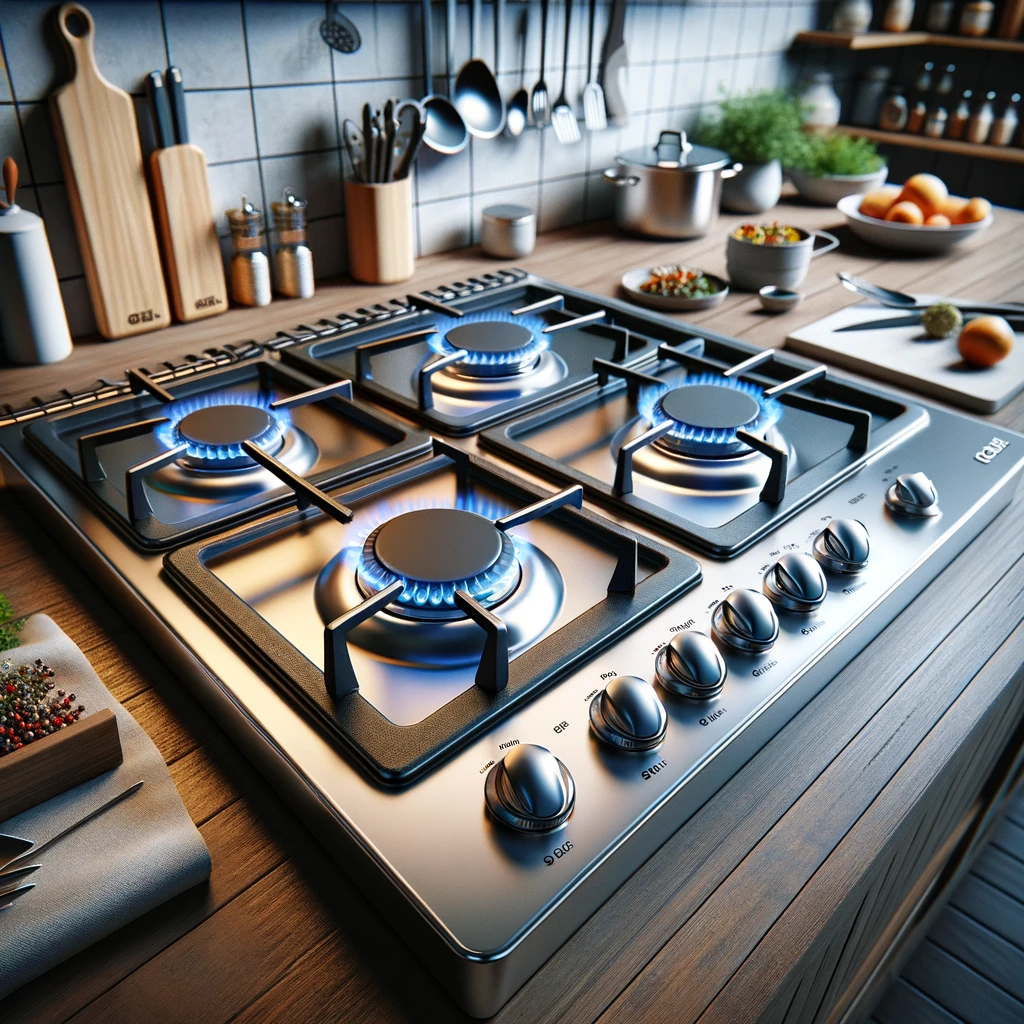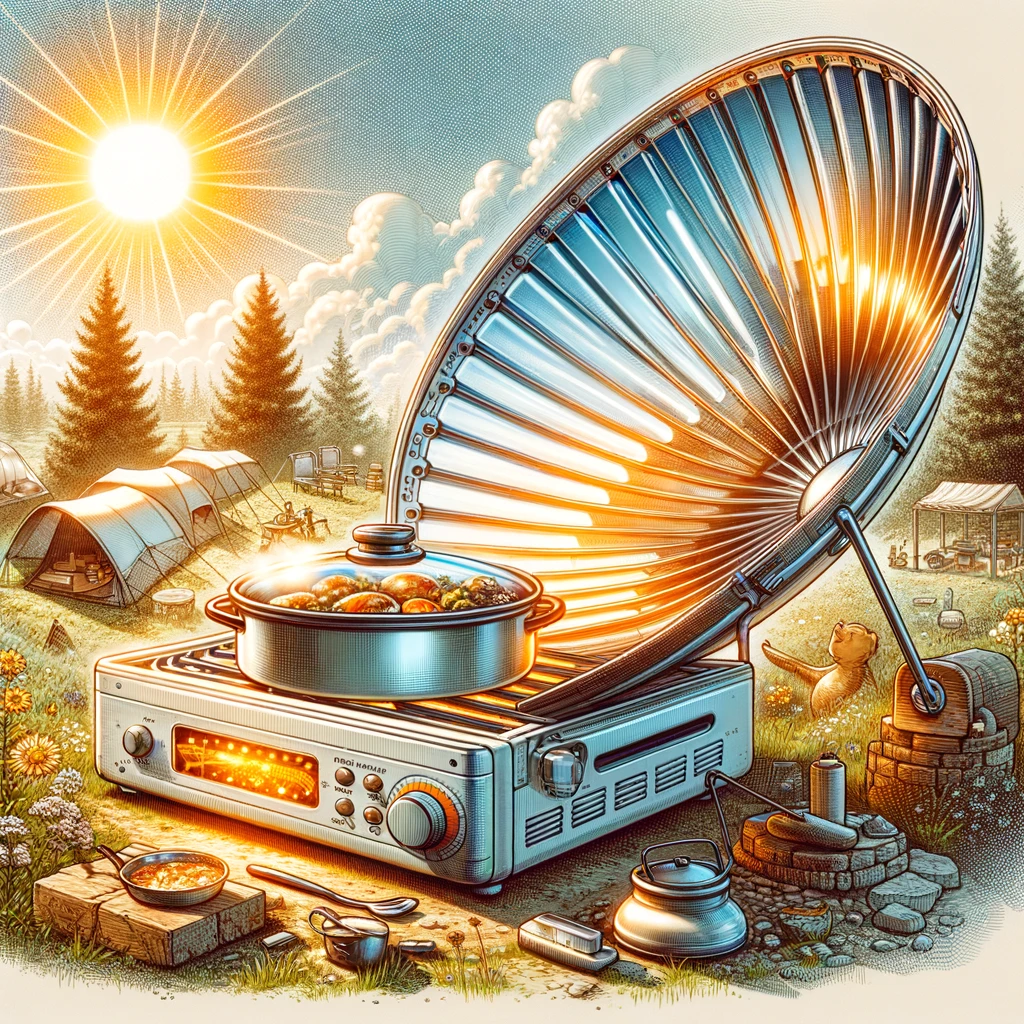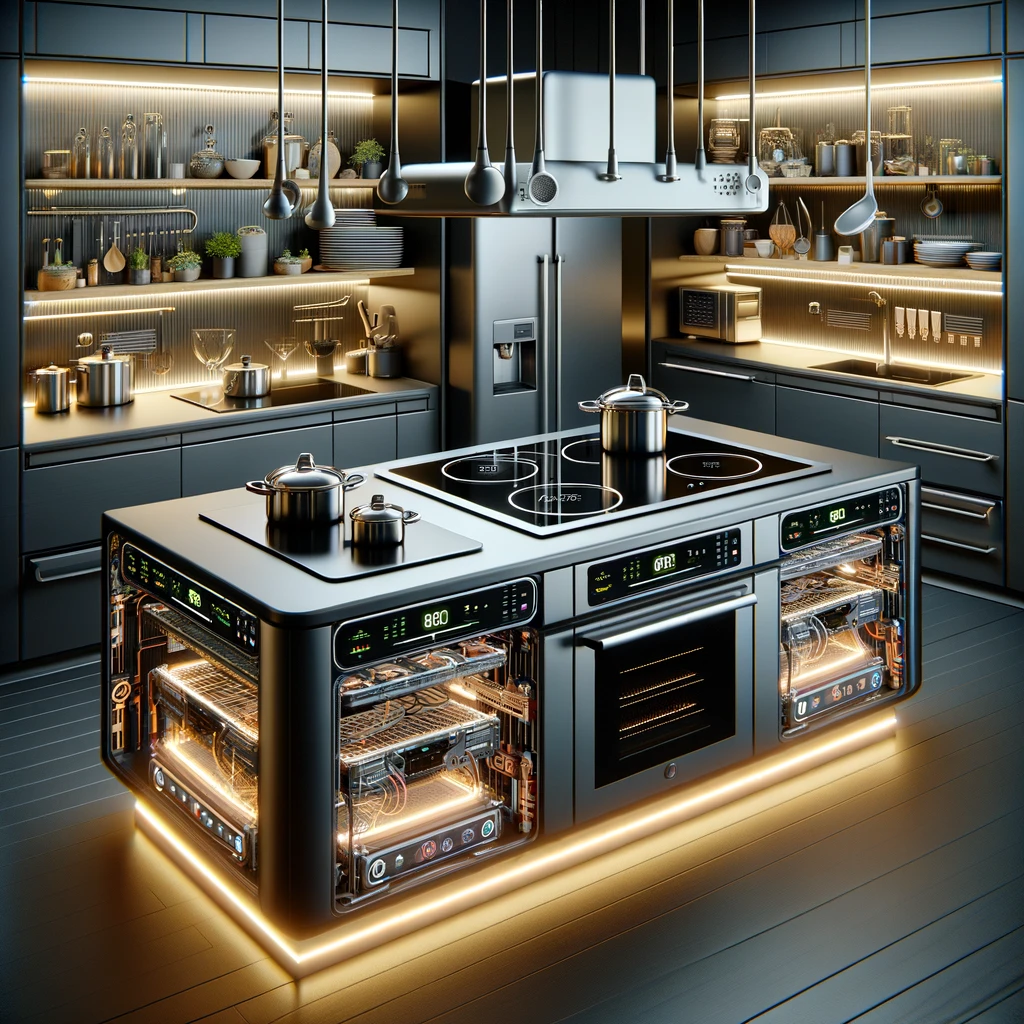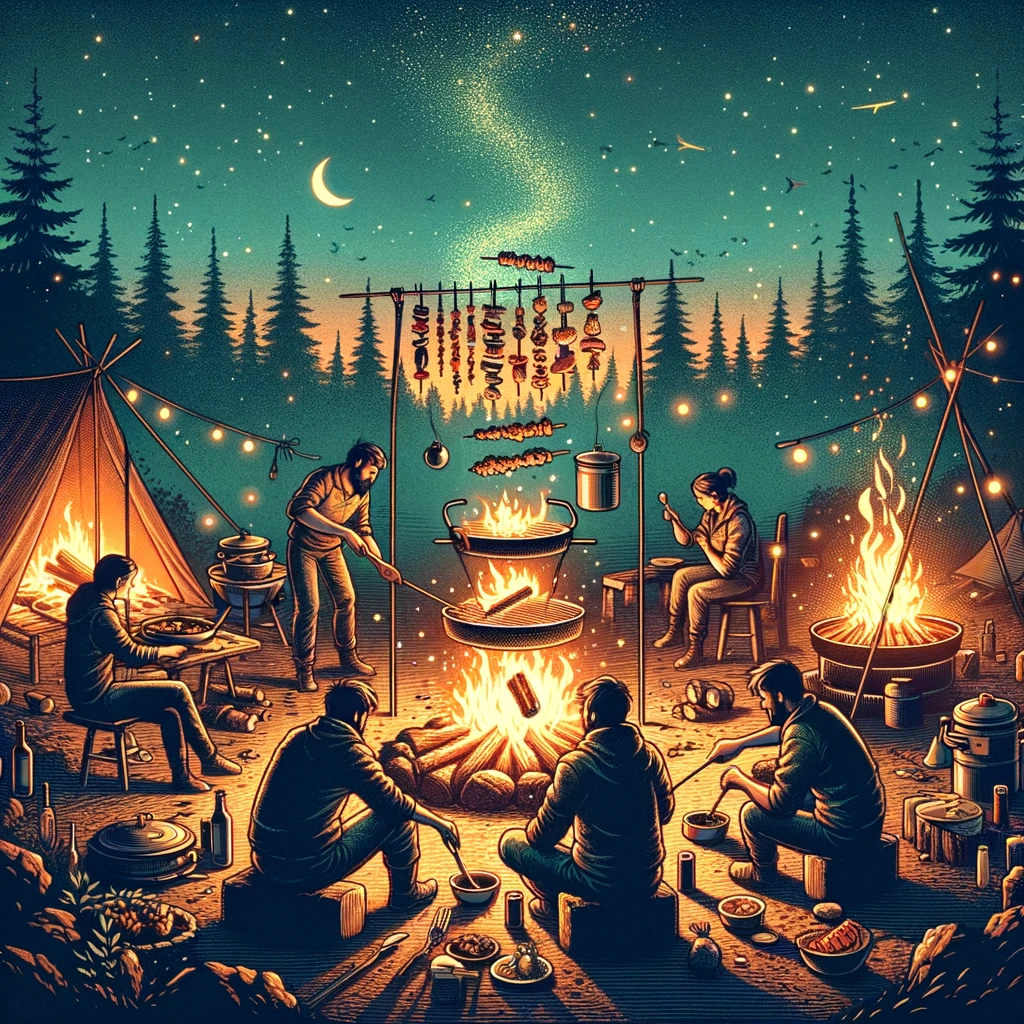Power Sources for Cooking in Your Van
Embarking on the van life journey brings unique challenges, especially when it comes to cooking. The fusion of convenience, efficiency, and safety in choosing a power source for your culinary ventures on wheels is vital. In this guide, we’ll deep dive into the realm of powering your van’s kitchen.
Understanding Your Van Life Energy Needs for Cooking
Every kitchen gadget in your van translates to a specific energy footprint. The power source you choose should complement this consumption pattern. For instance:
Boiling water: An electric kettle consumes approximately 1,000 to 1,500 watts, but it operates for a short duration. In contrast, heating water on an electric stove might take longer, even if the wattage is similar.
Oven use: A compact electric oven can use between 2,000 to 5,000 watts, depending on its size and cooking temperature. Gas ovens, while not drawing on electrical power, will deplete gas resources over time.
To ensure you’re never without power, make an inventory of your most-used appliances, note down their wattages, and consider how long you’ll be using them. From this, you can craft a weekly energy consumption estimate to help you choose the right power sources.
Traditional Cooking Methods and Power Sources
Gas Stoves
Favored by many van lifers for their reliability, gas stoves offer a direct flame, mimicking the home cooking experience. The choices in gas types – propane, butane, or isobutane mixtures – differ in their heat output and cost. For example:
Propane: It’s widely available and burns hot, making it ideal for colder climates.
Butane: Typically comes in small canisters and is suited for portable stoves. However, its performance dips in colder temperatures.
Isobutane Mixtures: These are often blended with propane to combine the best of both fuels.
Remember, while gas stoves don’t draw on your van’s electrical resources, they do require proper storage for their fuel and adequate ventilation to prevent hazardous conditions.

Electric Cooking Devices
With the rise of modern van life, many are leaning towards electric appliances. Their advantages lie in precision and consistent temperature control. However, the energy demand is a crucial factor:
Induction Cooktops: They heat quickly and are energy-efficient but require specific cookware.
Electric Griddles: Ideal for versatile cooking, from pancakes to grilled sandwiches, but they might draw more power over longer cooking durations.
Solar-Powered Cooking
The sun, an abundant energy source, can be harnessed directly or indirectly for cooking:
Solar Ovens
These devices use mirrors and reflective surfaces to concentrate sunlight, creating heat to cook food. While they don’t consume any external power and are environmentally friendly, cooking times can be extended, especially on less sunny days.
Unfortunately as cool as they sound and work, they shouldn’t be relied on as a permanent cooking source.


Solar Panels and Electric Appliances
Instead of direct solar cooking, one can install solar panels to harvest sunlight, converting it to electricity. This stored power can then be used for electric stoves, ovens, or other devices. When considering this approach:
Panel Efficiency: Not all solar panels are created equal. Monocrystalline panels, for example, are more efficient than their polycrystalline counterparts.
Storage: Once the energy is harvested, it’s stored in batteries. The capacity of these batteries determines how much energy you can utilize before needing a recharge. Understanding your cooking energy needs will guide the battery size and solar panel output required.
Backup Systems: It’s always wise to have a secondary power source. Days with minimal sunlight could affect cooking routines; hence the need for a backup, be it a gas stove or a portable generator.
Battery Systems for Cooking
Lithium-ion, deep-cycle, and AGM batteries all have their own strengths. Lithium-ion batteries, for example, are lightweight and offer a longer lifespan, making them perfect for frequent use.
Your choice should be influenced by your cooking habits, the energy requirement of your appliances, and how frequently you can recharge.


Generators
Generators are traditionalists’ best friends, providing consistent power as needed. Whether gasoline, diesel, or propane-powered, they’re dependable for high-energy tasks. However, they can be noisy. Opt for inverter generators for quieter operations and better fuel efficiency.
Campfire Cooking
Embracing the ambiance of a campfire is not only about roasting marshmallows and sharing stories but also a primal method of cooking. Campfire cooking invokes a sense of simplicity, allowing one to connect with nature. However, while the allure is undeniable, there are important considerations to weigh:
Advantages of Campfire Cooking
Flavor Enhancement: The smoky aroma from a wood-burning fire can impart unique flavors to your food, a treat seldom replicated by modern cooking methods.
Variety of Cooking Techniques: From grilling over open flames to burying food for slow-cooked warmth, a campfire offers diverse culinary techniques.
Energy Savings: Campfires don’t rely on the van’s power sources, conserving energy for other needs.
Safety and Environmental Concerns of Campfire Cooking
Fire Restrictions: Many regions, especially during dry seasons, might have fire bans or restrictions. Always check local guidelines before starting a campfire.
Wildlife Attraction: Food smells can attract wildlife. It’s crucial to cook at a safe distance from your sleeping area and to store food securely.
Environmental Impact: Over time, repeated campfire use can scar landscapes. Use established fire rings or pits and avoid creating new fire sites. Remember the Leave No Trace principles: always fully extinguish fires and clean up all remnants.


Practically of Relying on A Campfire
Fuel Source: While wood is the go-to, the quality matters. Green or wet wood creates excessive smoke and is less efficient. It’s wise to carry a small stash of dry wood or fire starters to aid in igniting a fire.
Cookware Considerations: Not all kitchenware is suited for direct flame. Cast iron pans, grill grates, and fireproof pots are best for campfire cooking.
Temperature Control: Unlike the precise control of gas or electric stoves, campfire cooking requires intuition. The coals provide consistent heat, while open flames can be hotter and less predictable.
Incorporating campfire cooking into your van life culinary repertoire can be rewarding, but it’s imperative to do so responsibly. While it’s an age-old method, awareness of safety and environmental implications ensures a sustainable and enjoyable experience.
Efficiency Maximization Tips
Your energy source’s efficiency is paramount. Opt for cooking devices with excellent energy-to-output ratios. Consider batch cooking to save energy and time. Devices like thermal cookers retain heat, reducing the need for continuous power.
Safety Precautions and Best Practices
Safety is non-negotiable. Ensure proper ventilation when using gas stoves or generators. Store fuels with care, away from heat sources. And, always monitor your devices to prevent overheating, which could damage them or, worse, pose a fire risk.
For more van life & car camping cooking and storage tips, make sure to checkout our other van life food tips.
Author
-


Augustus, an intrepid traveler and RV enthusiast, has journeyed across North America, Europe, and Australia, turning his passion for adventure into a life's mission. His love for exploring began in his childhood, with local hikes and camping trips igniting a deep connection with nature. This connection now shines through in his popular travel blog, where he shares not just tips but personal stories, captivating a community of fellow wanderers. His travels are further enriched by his partnership with Zaara, his wife and travel companion, together exploring remote landscapes and diverse cultures. Augustus is also a skilled photographer, capturing the beauty of nature and the essence of his nomadic lifestyle in each shot. His life story is a mosaic of breathtaking experiences, a testament to the beauty of following one’s passions and embracing the unknown, inspiring others to explore the world with the same fervor.
View all posts

